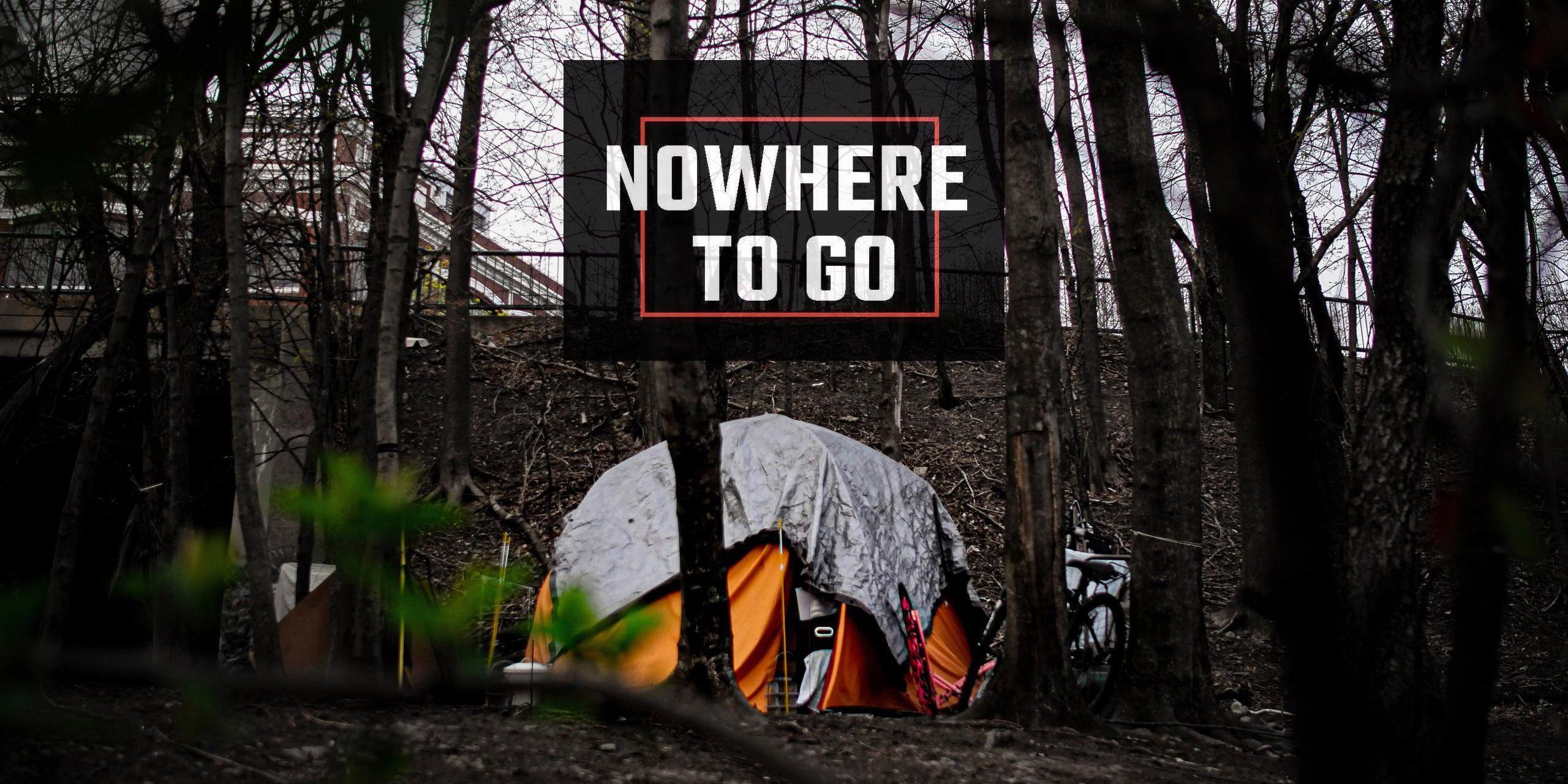
COLLEGE PARK -- “Nowhere to Go,” an extensive homelessness investigation led by the University of Maryland’s Howard Center for Investigative Journalism, won the 2020 Sigma Delta Chi Award for Collaborative Journalism, the Society of Professional Journalists announced.
The Howard Center wanted to take a nationwide snapshot of how the half-million homeless people are being treated in America, and also of those facing the threat of homelessness amid the COVID-19 pandemic.
To do that, it created an unprecedented collaboration among seven university journalism programs spanning the country. Led by the Howard Center, the consortium teamed journalists from the UMD Philip Merrill College of Journalism with those at the University of Oregon, Boston University, Stanford University, the University of Arkansas, the University of Florida and Arizona State University.
Despite challenges posed by the pandemic, the collaboration produced about 40 stories — national investigative pieces, a long-form narrative, explanatory stories, case studies, a podcast, photos, videos and graphics.
“Although our students couldn’t travel due to the pandemic, our collaboration with universities around the country allowed us to produce a national package,” said Kathy Best, director of the Howard Center. “Our students were resourceful, building digital scrapers for court records, mining public documents and using social media when they couldn’t talk in person with people living on the edge.”
“Nowhere to Go” was also one of several Merrill College projects to win a Dateline Award from the SPJ Washington, D.C., chapter, claiming the Non-Breaking Online News honor. It was previously recognized with an SPJ regional Mark of Excellence Award for an entry from Boston University, and was named a finalist for an IRE Award (Investigative Reporters & Editors) in the Student - Large category. All are professional journalism awards.
The first portion of the project tackled the criminalization of homeless people. It was published in June by Merrill College’s Capital News Service and The Associated Press.
The second part, on homeless encampments, and the third part, on a specific homeless encampment in Florida, published in July. The summer project, on evictions, published in August. Additional pieces on public housing and trailer parks were published in December and January, respectively.
The reporting for all stories relied on court records for criminal and eviction cases, arrest records and data from public-information requests from local and federal government agencies, property-ownership documents, 311 calls and the text of local ordinances that effectively criminalized homelessness.
Student journalists across the consortium interviewed landlords, public-housing managers, tenants, people living on the streets, people living in shelters, national housing experts and local police and sheriffs. The team read reams of studies and reports, as well as details of the CARES Act eviction moratorium.
The project was the subject of a story by the Center for Cooperative Media, exploring “one of the largest college journalism collaborations ever.”
The work was supported with grants from the Park Foundation, the Scripps Howard Foundation and the Pulitzer Center. The Howard Center was created with generous support from the Scripps Howard Foundation to honor the late news industry executive and pioneer Roy W. Howard.
SPJ DC Dateline Awards
Several other members of the Merrill community were winners and finalists of professional SPJ D.C. Dateline Awards.
The Robert D.G. Lewis Watchdog Award, the top honor awarded by the SPJ D.C. chapter, went to Merrill adjunct lecturer Eric Falquero of Street Sense Media. Falquero won for his investigation of one man’s journey through the mental health and policing systems.
The award, which comes with a $1,000 prize, is presented to a journalist or group in any award classification whose entry best exemplifies journalism aimed at protecting the public from abuses by those who would betray the public trust.
Merrill graduate Callie Tansill-Suddath shared the byline with Falquero on a winning entry from the project in the Weekly Newspaper Investigative Journalism category. Falquero also won a Breaking News award in the Weekly Newspaper bracket.
Capital News Service swept the Online Infographic category with student Ben Gonzalez’s “The Legislative Legacies of the George Floyd and Breonna Taylor Protests.” Student Sean McGoey and CNS Digital Bureau Director Adam Marton were finalists for “Blue Precincts in Republican Counties Helped Boost Biden to Victory in Maryland.”
Visiting Professional Bill Lambrecht and student Gracie Todd were finalists in the Online Series category for their Howard Center project on saltwater intrusion.
Retired faculty member Sue Kopen Katcef of Maryland Public Television won the Television Non-Breaking News award for “Floyd Protest Historic Ties.”
For more information, contact:
Josh Land
joshland@umd.edu
301-405-1321
